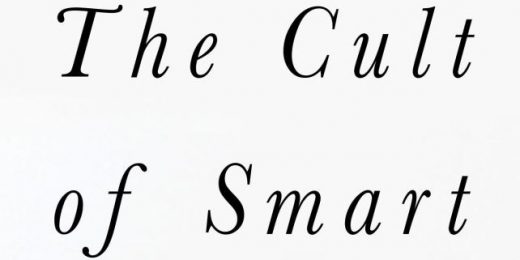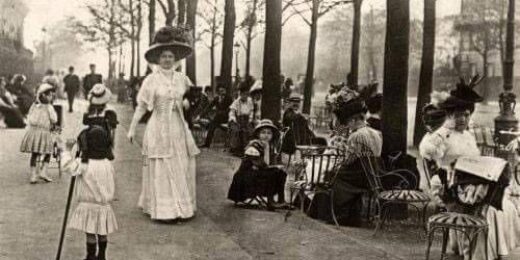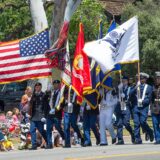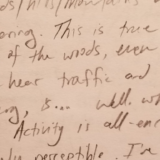“The Harrow and the Harvest”: Silver Dagger
(I’m writing about Gillian Welch’s The Harrow and the Harvest until I feel like stopping. But really, you should listen to the music more than you should pay attention to me.)
More commented on in reviews than the links between “Hard Times” and Stephen Foster’s songs is the connection between Welch’s “Silver Dagger” and the 60s folk standard of the same name, popularized by Joan Baez. The traditional song tells the story of a girl warning her lover to leave her, as her mother, who sleeps beside her with a silver dagger, distrusts men or the thought of her daughter marrying.
Welch’s is narrated by a young woman who, it would appear, is trying to escape from those who know her—not from fright, but from a joy at having disappeared, at being unknown. (“I can’t remember when I felt so free,” she sings.) Lyrically, the songs are only connected through their titles and Welch’s closing stanza:
Seems every castle is made of sandThe great destroyer sleeps in every manHere comes my baby, here comes my manWith that silver dagger in his hand
This image, in fact, seems almost drawn from the song “Katy Dear,” (an alternative, but related, set of lyrics to the same melody), in which
He picked up a silver daggerHe pierced it through his wounded breastFarewell Katy, farewell darlingI’ll die for the one I love the best.
That the traditional melody had two competing, but related, sets of lyrics is due to its origin as a traditional folk ballad, preceding the Songbook. It may be more important to note that Welch looked toward a song from the folk movement of the 1960s that had its direct origins, like her own music, in an older tradition (as opposed to tying a song to one of the newer songs, those of which Leonard Cohen once commented, “I don’t know what it is, but it isn’t folk music.” He included himself in that statement.)
I saw Gillian Welch and David Rawlings perform last week; watching them sing this song allowed me to make a few observations I wouldn’t have from simply listening to it. For the first portion of the song, Rawlings stood some five feet back from his microphone, out of the spotlight (the only song on which this happened), while Welch stood with a guitar and harmonica in the “traditional” 60s folk posture. Her style of play changed from her usual strumming/single-string picking to the four-finger picking rhythm that was, again, common in the 60s folk style; particularly, from what I understand, in the New York scene. (It’s what Baez typically used; Bob Dylan’s use of this method is why “Don’t Think Twice, It’s All Right” sounds so different from his other early work—he’s finger-picking, not strumming.)






























Hello and thanks for this short review into Welch´s song. It (Silver Dagger) has a catchy tune which I´ve vaguely heard before. Do you know if Welch´s songs are religious in nature, i.e. Christian or other? This song makes reference to the bible but I am not sure if it is suggesting the girl is tired of reading it or perhaps has some other meaning. The song that it reminds me of is http://www.youtube.com/watch?v=N5ddoyfn6g4Report
Gillian and Dave did a version of “Katie Dear” with the Chieftans some years ago. It appears on The Chieftans’ album Down the Old Plank Road.
The melody of their H&H version of “Silver Dagger” seems very close to the melody of “You Are My Sunshine.” Do you have any insight into the origins of that melody?Report